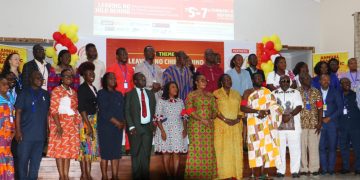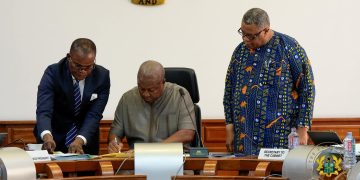In a bold move to address the challenges plaguing Ghana’s ambitious One District, One Factory (1D1F) program, Minister-designate for Trade, Agribusiness, and Industry, Elizabeth Ofosu-Adjare, has said that the solutions to 1D1F challenges lies in the 24-hour economy.
This strategic shift aims to breathe new life into the initiative, which has faced significant hurdles since its inception.
The 1D1F program, aimed at adding value to Ghana’s raw materials, has faced significant hurdles, including a lack of raw materials and access to capital. Despite government support, factories have struggled due to high interest rates and unfulfilled promises of financial assistance.
Ofori-Adjare emphasized that the One District, One Factory (1D1F) initiative, launched under the Nana Addo Dankwa Akufo-Addo administration, has had both positive and negative impacts.
She noted, “1D1F is a program for Ghanaians by the govt of Ghana it has its pluses and minuses. For the pluses, the 1D1F set up factory where individuals could add value to our raw materials and these Agro producing factories started but because of some challenges they’ve not be able to do what was expected of them”.
The Minister designate highlighted a significant challenge facing the One District, One Factory (1D1F) initiative: the outgoing government’s failure to honor its promise to pay a 10% interest rate. She noted that this promise was made when the government capped interest rates at 20%.
“The 1D1F factories major challenge is that you know govt capped their interest at 20% and govt promises to pay 10% of them which was a very good programme but some where along the line the interest shot to 35% so now the problem the companies have is who pays the difference of 15% because they’ve already sold their products calculated at an interest of 10% and one thing govt has also not been able to do is to pay the extra 10% of these manufacturers. So these are the challenges of 1D1F”, she stressed.
Ofosu-Adjare suggests that transitioning to a 24-hour economy could provide a solution. She stressed that the approach would offer businesses incentives, with agribusiness playing a crucial role through commercial contract farming.
“Now that we know the challenges, how are we going to solve it going forward. I see the solution in the 24hr economy. In the 24hr economy, businesses are going to receive incentives, in the 24hr economy Agri business is going to play a key role. Agri business role, we’re going to do commercial contract farming. The commercial contract Farming is going to solve the raw material problem to a very large extent on so doing these factories that have signed on into the 1D1F am sure will sign on into the 24hr economy and get the benefits of the raw materials availability will get the benefits of tax holidays, they will get the benefits of stimulus package they will get and I think that it is Ghana, these industries are not political they’re looking for what a country can do for them”, she explained.
Source: www.kumasimail.com/ Kwadwo Owusu


































































